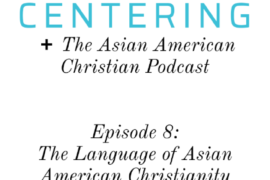
[Bill Watanabe is a legend in the Los Angeles Japanese American community. Born in the Manzanar concentration camp during World War II, he founded the Little Tokyo Service Center in 1980. He is a Christian and a founding member of Asian-American and Pacific Islander Christians for Social Justice.
With Bill’s permission, we are reprinting several of his pieces originally published in the Rafu Shimpo. We believe that his wisdom and experiences are invaluable resources for our contemporary Asian American Christian community. – Editor]
At the beginning of WW2, there was a curfew imposed in Southern California when people could not be on the streets and houses had to be darkened after 10 pm. This was because of the fear (real or imagined at the time) of a Japanese military invasion of the West Coast. My family lived on a farm near Laurel Canyon Blvd. in Pacoima which was quite rural back then and there were no street lights or commercial or retail stores of any kind. With the curfew and if there was no moonlight, the nights could be very, very dark.
My mother told me about a time during the curfew when my older brother Kinjiro (who was about 6 years old then) became ill and was coughing profusely. My mother turned on the bedroom lights to try to attend to her young son when she heard a knock on the door and was told by the neighborhood curfew monitor that she must turn off the lights or she would be reported to the authorities. My mother, who rarely said anything negative about anything, told me many years later with deep anger in her voice how helpless she felt that she could not take care of her son but could only sit in the dark and listen to her son’s coughing and hope it will be better by morning. I can only imagine how hard it must have been for a mother to have to suffer in that way!
“My mother told me many years later with deep anger in her voice how helpless she felt”
When the orders came down from the military authorities that our family would have to report to the Burbank bus depot to be taken to parts unknown, my older brothers Kinichi and Kinjiro and a family friend named George Ikeda who worked on our farm decided to bury some valuables in order to hide it from the government. The government had issued orders that things like cameras, knives, weapons, etc. could not be taken to the camps so George and my brothers made a plan to dig a hole in the ground under cover of the curfew and bury some of these items. George was an accomplished amateur photographer who had some high-quality cameras and photography equipment. He was also an amateur ham radio operator as well as owning some heirloom Japanese swords and a rifle. These items were too valuable to be sold off or entrusted to someone else so they had to be buried and hidden away.
According to my brother Kinjiro, the secret trio picked a night that was very dark because they didn’t want any of their snoopy neighbors to see what they were doing. They slowly and carefully (without flashlights) marched off a certain number of paces from the corner of the packing shed out into the farm. Then they turned right and marched some more steps and marked “the spot”. They silently started digging and when the hole was deep enough, they placed a canvas bag with the treasures inside and put it into the hole and covered it up. They made a map so they would know where the spot was and the items could be retrieved if and when the war ended and they could return. Soon after burying the treasure, the entire family and George were all taken to Manzanar to be incarcerated.
“the entire family and George were all taken to Manzanar to be incarcerated.”
After the end of WW2, my family finally returned to the farm in 1947. George and my brothers took out the map of the secret buried treasure and they marched off the steps – from the corner of the packing shed and then a right turn and walking more steps to “the spot”.
Alas, they dug dozens of holes for many days but never found the treasure. Perhaps it is still somewhere in the ground. It might be discovered by archeologists of the future who will wonder why these things were buried in the ground – who can say? The buried treasure could someday be worth a lot of money as historic artifacts!



34,274 Comments